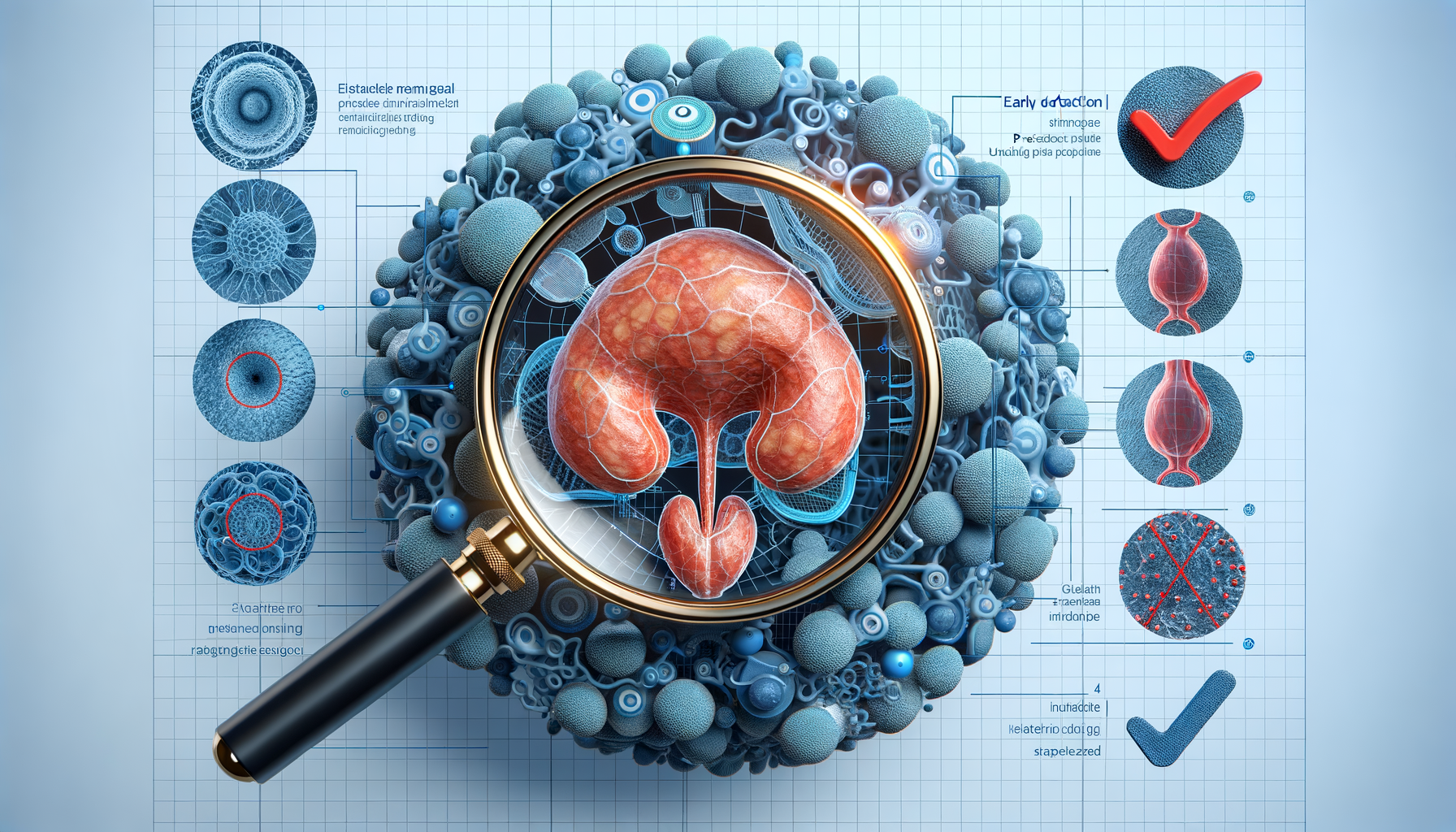
Prostate Health 101: Know the Signs Before It’s Too Late
Understanding Prostate Health
The prostate is a small gland located just below the bladder in men, playing a crucial role in the reproductive system. Despite its small size, the prostate can cause significant health issues if not monitored properly. Prostate health is essential for overall well-being, particularly as men age. Regular check-ups and awareness of symptoms can make a significant difference in early detection and treatment.
Prostate problems are common, with conditions ranging from benign prostatic hyperplasia (BPH) to prostate cancer. BPH is a non-cancerous enlargement of the prostate, often affecting urinary functions. Prostate cancer, on the other hand, is a serious condition that requires immediate medical attention. Understanding these conditions and their symptoms is crucial for early intervention.
Men should be aware of symptoms such as difficulty urinating, frequent urination at night, and blood in the urine or semen. These can be signs of prostate issues and should prompt a visit to a healthcare provider. Early detection is key in managing prostate health, as it allows for more treatment options and better outcomes.
Importance of Early Detection
Early detection of prostate issues can significantly impact treatment success and quality of life. Prostate cancer, in particular, is highly treatable when caught early. Screening tests, such as the prostate-specific antigen (PSA) test and digital rectal exams (DRE), are vital tools in early detection.
The PSA test measures the level of PSA in the blood, which can indicate prostate problems. While elevated PSA levels do not always mean cancer, they warrant further investigation. The DRE involves a physical examination of the prostate to check for abnormalities. Combining these tests provides a comprehensive approach to monitoring prostate health.
Regular screenings are recommended for men over 50, or earlier for those with a family history of prostate cancer. Early detection not only improves treatment outcomes but also reduces the risk of complications. By staying informed and proactive, men can take control of their prostate health.
Lifestyle Factors and Prostate Health
Lifestyle choices play a significant role in maintaining prostate health. A balanced diet, regular exercise, and avoiding smoking and excessive alcohol consumption can reduce the risk of prostate problems. Foods rich in antioxidants, such as fruits and vegetables, are particularly beneficial.
Regular physical activity helps maintain a healthy weight, which is important because obesity is linked to an increased risk of prostate cancer. Exercise also improves circulation and boosts the immune system, contributing to overall health.
Men should aim for a diet low in saturated fats and high in fiber, with an emphasis on plant-based foods. Omega-3 fatty acids, found in fish, are also thought to be beneficial for prostate health. By making these lifestyle changes, men can support their prostate health and reduce the risk of developing serious conditions.
Common Myths and Misconceptions
There are several myths and misconceptions surrounding prostate health that can hinder proper care and early detection. One common myth is that prostate problems only affect older men. While age is a risk factor, younger men can also experience prostate issues.
Another misconception is that all prostate problems are cancerous. Many prostate conditions, such as BPH, are benign and treatable. It’s important not to panic but to seek medical advice if symptoms arise.
Some believe that a high PSA level always indicates cancer. However, elevated PSA can be caused by various factors, including infections or inflammation. Understanding these nuances is crucial for making informed decisions about prostate health.
By dispelling these myths, men can approach prostate health with accurate information and a proactive mindset, leading to better outcomes and peace of mind.
Proactive Steps for Prostate Health
Taking proactive steps in maintaining prostate health is essential for early detection and prevention of serious conditions. Regular medical check-ups, including PSA tests and DREs, are crucial components of a proactive health strategy.
In addition to medical screenings, men should focus on maintaining a healthy lifestyle. This includes a balanced diet, regular exercise, and avoiding harmful habits like smoking. Staying informed about prostate health and understanding the risks and symptoms can empower men to take charge of their health.
Men should also engage in open discussions with their healthcare providers about prostate health. Asking questions and addressing concerns can lead to better understanding and management of potential issues.
By incorporating these proactive measures into their routine, men can significantly improve their prostate health and overall well-being, reducing the risk of serious conditions and enhancing their quality of life.


